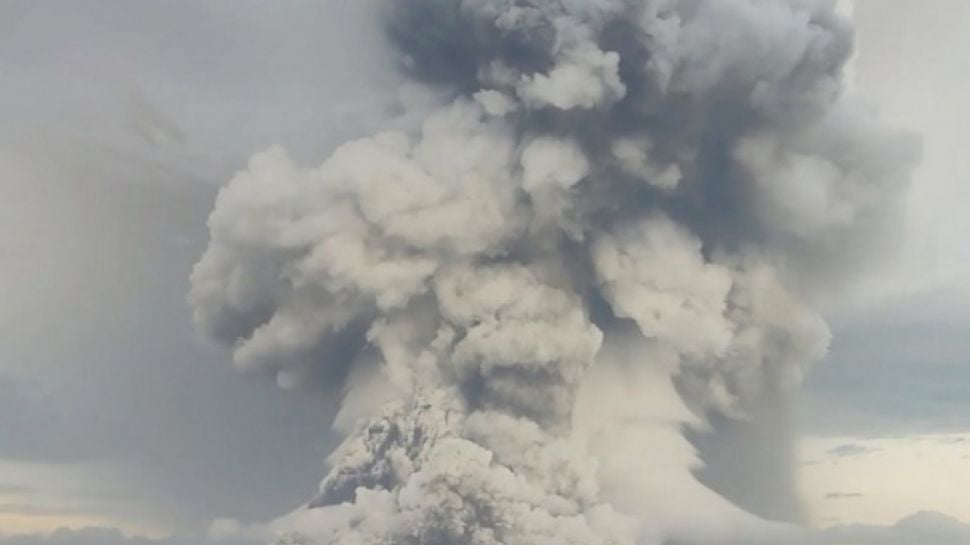TANTRUM – Terrible eruption Mountain berabi Hunga Tonga-Hunga Ha’apai in Tonga on January 15, 2022, ‘injected’ an unprecedented amount of water directly into the stratosphere, the equivalent of more than 58,000 Olympic-sized swimming pools.
Volcanic eruption Hunga Tonga-Hunga Ha’apai released enough ‘strange water’ to fill more than 58,000 Olympic-sized swimming pools.
“Honestly, we’ve never seen such a phenomenon,” said Luis Millán, an atmospheric scientist who works at NASA’s Jet Propulsion Laboratory.
When a volcano erupts, seawater comes into direct contact with the lava and becomes very hot. This condition then creates an ‘explosive vapor’.
Reported by the New York Post excerpted from Telset, Saturday, August 6, 2022, NASA scientists say the vapor will persist for years and may affect global average temperatures. Earth.
Usually steam takes about 2-3 years to dissipate. However, water from the January 15, 2022 eruption could take 5-10 years to evaporate.
Hunga Tonga-Hunga Ha’apai was probably the first volcanic eruption to impact climate, not through surface cooling caused by volcanic sulfate aerosols.
“The impact on the climate is not through surface cooling caused by volcanic sulfate aerosols, but rather by warming the surface,” Millán hypothesizes.
Millán led the study of the amount of water vapor that volcanoes inject into the stratosphere, the layer of the atmosphere about 12-53 kilometers above the Earth’s surface.
Millán and colleagues found that the Tonga volcano sends about 146 tetragrams (1 tetragram equals one trillion grams) of water vapor into Earth’s stratosphere.
The amount of water released into the stratosphere is equal to 10 percent of the water already in the atmosphere. Their research is published in Geophysical Research Letters.
The eruption came from a volcano more than 12 miles wide. The day before the major eruption, the volcano continued to erupt.
Millán and colleagues report that the Tonga volcano sends material in the form of a 3-mile-wide plume of ash, steam, and gas that rises 35 miles into the atmosphere.
The researchers also noted how water vapor can weaken ozone layer which protects all life on Earth from radiation Sun destructive.
The authors say it is too early to predict the exact climate effects of the Tonga eruption.
“It is important to continue to monitor the volcanic gases from the eruption,” he concluded.
–


